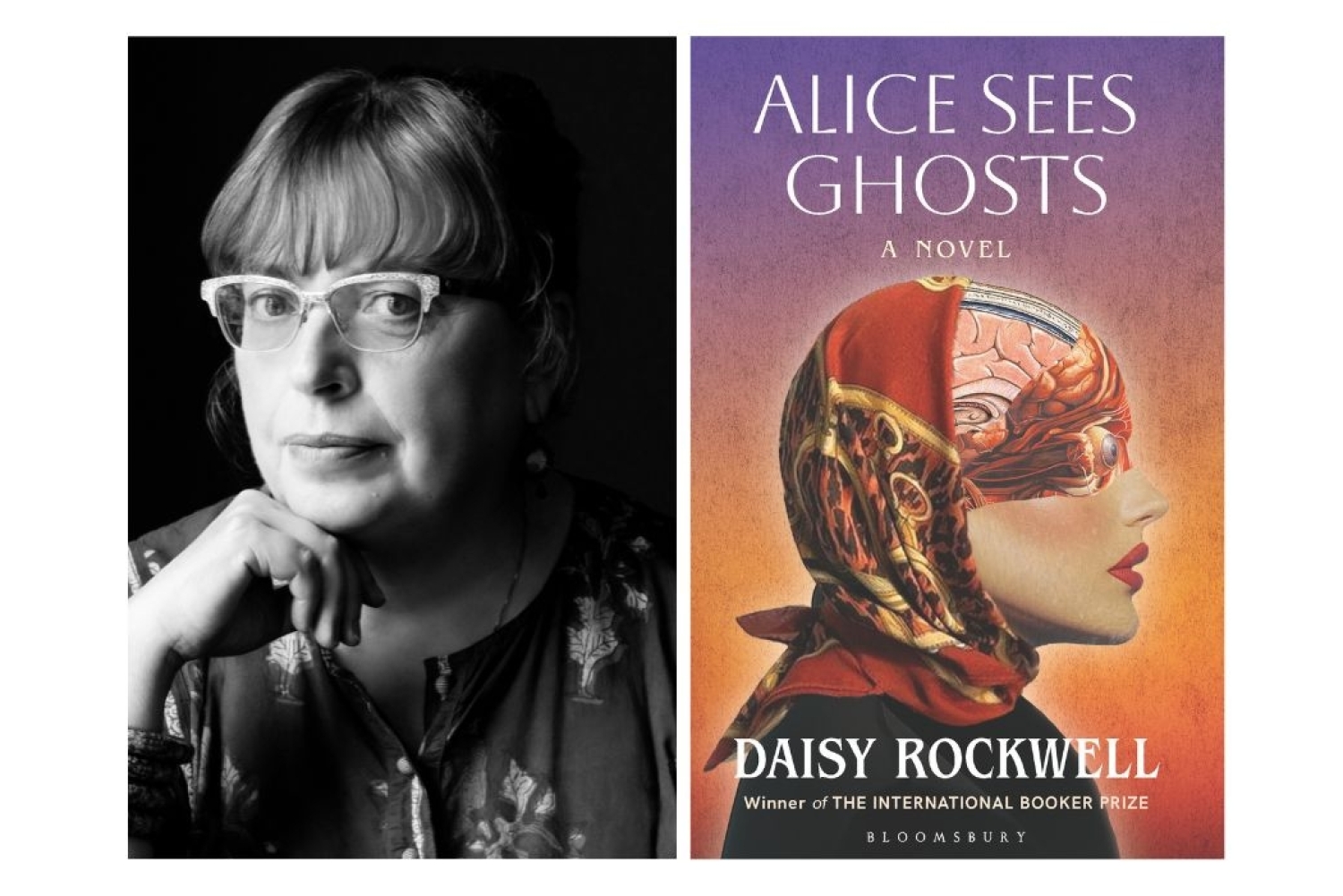

International Booker Prize winner Daisy Rockwell’s novel Alice Sees Ghosts follows the protagonist Alice, through her journey of being haunted by a special visitor. Alice soon becomes obsessed with the supernatural, and the ghost's cryptic and friendly whispers lead her on a journey to India, where long-buried family secrets lie in wait. For Rockwell, ghosts are not just the dead returning but also the living echoes of family, memory, and unresolved ties. Alongside her celebrated career as a translator, Rockwell here turns fully to her own storytelling, navigating the unsettling but liberating task of inventing a world from scratch. Daisy Rockwell tells us more about the book and its creation below:
What first inspired the idea of Alice’s story, and drove you to write this novel?
On my mother's side of the family, I come from a decaying, vanishing aristocracy. It was a tight-knit eccentric world with its own rules, vocabulary and aesthetics. My inspiration is drawn from that world that barely exists now, and the things that remind me of it: certain old photographs, household objects (a glass, a piece of china), a letter from long ago...
What has been your experience of writing a novel that dabbles with the supernatural? How did you strike a balance between emotional realism and ghostly elements?
My mother raised me to believe in ghosts and there are many tales of family hauntings. To me, this is not the supernatural but realism. I also believe that we can be haunted by both the dead and the living. The boundary of death is more porous than we sometimes realize.
What does the ghost in this story represent?
The principal ghost is Alice's grandfather, but as I mention above, there are also living ghosts and hauntings of various kinds. Through the ghost, Alice is able to make sense of the present by connecting with the past. But she also simply enjoys the sleuthing of it all, once she is given clues. So I guess the ghost/s represent psychological layers from the past which when they choose to manifest help us to view the present in a new light.
At its heart, the novel deals with closure. What does closure mean to you personally, and what do you hope for readers to take away from it?
I don't know if I agree with that statement...I mean closure is achieved for the ghost, because as we all know, ghosts are always looking for that. For Alice, the journey that the ghost (and other hauntings!) send her on satisfies her need for meaningful connections with her family and with life in general, so that she stops living as a bit of a ghost herself.
“When I'm writing my own novel, it's all up to me. That can be a bit scary; like driving without a map (or GPS), but it is also freeing to use my own voice and create my own scenarios.”
Tell us about some books, art, films or any other forms of media that you drew inspiration from.
The book might be considered a bit old-fashioned in terms of style and themes. I think there's a touch of the gothic in the work--one of my favorites is the 1794 novel The Mysteries of Udolpho by Ann Radcliffe. In terms of style and pacing I think I am mostly aligned with writers like Edith Wharton or Barbara Pym. Of the authors I have translated, I think this particular novel would most likely be influenced in part by Usha Priyamvada (stylistically) and Hijab Imtiaz Ali (thematically).
Having dabbled in significant amounts of translation and writing, tell us about how you think of storytelling differently when it comes to both.
If I'm translating, I am not responsible for the storytelling at all. A translator controls the style and flow of the writing but not the plot or characters or anything like that. When I'm writing my own novel, it's all up to me. That can be a bit scary--like driving without a map (or GPS)--but it is also freeing to use my own voice and create my own scenarios.
What is the future looking like — what are you working on next?
Always many translations! Also my memoir, Our Friend, Art (out from Pushkin Press in the US/UK in 2027), and the beginnings of a murder mystery set in my home state of Vermont about two ferociously menopausal detectives investigating a murder at a veterinary hospital and animal sanctuary run by a Jain doctor. Hijinks ensue!
Words Neeraja Srinivasan
Date 8-9-2025